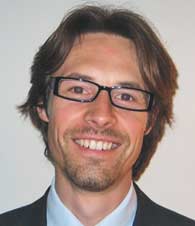|
Executive Interviews: Interview with Christian Stadler on Staying on Top, Always
October 2009
-
By Dr. Nagendra V Chowdary
-
Quite often, the terms, great
companies, visionary companies,
world-class companies, persistently
successful companies, etc., are used
synonymously. Rather, there’s some
confusion amongst these
nomenclature. Are they really same or
does each of them have a different
connotation?
I would be surprised if they are all the
same. It is important to have a clear
understanding how the author
selects the companies she/he refers to.
In our case the criteria were
1) survive 100 years and 2) beat the
market by a factor of 15 over a period
of 50 years.
-
For creating great companies what
do you require the most – visionary
leaders or visionary managers or a
just combination of both of them?
Vision is a very loaded term that was
particularly popular in the 1990s and
I do not like it very much. But I think
what you are asking is whether
success depends on the top
management, on the middle
management, or both. I think both is
the answer.
-
What kind of innovation –
product, process, business model or
organizational innovation – you think
is required for companies to be great
companies? All four of them but do
not forget to exploit your innovations!
What is the role of business schools
in preparing either great managers /
great leaders for them to create great
companies? Any interesting
developments that you have observed
either in European or American
business schools?
I observe a great deal of ethic courses
being added after the financial crisis.
However, I am not sure whether they
are effective as some of the least
responsible leaders went to some of
the top schools. Business school is
good in doing two things: 1) teaching
tools and fundamental business
knowledge and 2) creating networks.
I think it is an illusion to think that
they can change greedy irresponsible
people into good ones. This is a
responsibility that lies with the
parents and possibly society as a
whole. If a second level Wall Street
analysts earns more in a year than
most people in their lifetime I am not
surprised that many people think that
there is something wrong.
|
The interview was conducted Dr. Nagendra V Chowdary, Consulting Editor, Effective
Executive and Dean, IBSCDC, Hyderabad. This interview was originally published in Effective Executive, IUP, OCT 2009. Copyright © OCT 2009, IBSCDC
No part of this publication may be copied, reproduced or distributed, stored in a
retrieval system, used in a spreadsheet, or transmitted in any form or medium –
electronic, mechanical, photocopying, recording, or otherwise – without the permission
of IBSCDC. |
